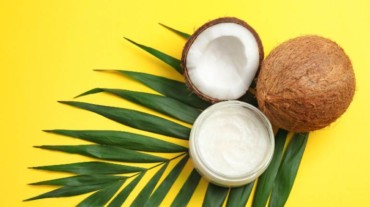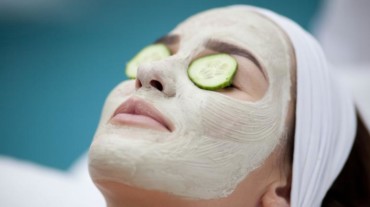
There is no denying the fact that all things natural, botanical, and organic are finding their way back into our skincare routines. Coconut oil is no exception.
With proven skincare benefits such as its skin-nourishing qualities, anti-bacterial and anti-inflammatory properties, and its ability to heal and protect the skin from all the damage due to sun exposure as well as air pollution—it surely is justifying its newfound status as the beloved skincare product everyone seems to be raving about.
However, all that glitters is not gold. And so is the case with coconut oil when it comes to using it on your face. Here’s what you need to know:
1. Coconut oil is comedogenic
As per a study published in the International Journal of Contemporary Medical Research, coconut oil has a comedogenic rating of 4. What this number basically indicates is an oil’s ability to penetrate the pores of your skin.

The higher the comedogenic rating, lesser is the penetrative ability of the oil and higher are the chances of the oil clogging the pores of your skin. Which is why even though coconut oil considered to the saviour for dry it’s best to use it on your body and not your face.
2. Nope, it won’t blur age lines
Coconut oil is associated with boosting collagen (a natural protein present in your skin that is responsible for giving it strength and elasticity) production and thus, preventing signs of ageing such as wrinkles and fine lines on your skin. In fact, this belief has become even stronger as the application of oils may give the appearance of smoothening out these signs of ageing on the skin.

However, this is just deceptive. In reality, due to its high comedogenic rating, coconut oil cannot get into the deeper layers of your skin. And thus, it has no role to play in boosting collagen production.
3. It might not cure your zits, but can give you fresh ones
Several studies including the one published in the journal Skin Pharmacology and Physiology have talked about the anti-bacterial and anti-inflammatory properties of coconut oil due to the presence of lauric acid in it.

However, the high comedogenic rating of coconut oil plays spoilsport here as well and thus, makes it capable of clogging your pores, trapping excess oil and dust, and making your acne worse.
4. It might not be a great moisturizer for your skin
Coconut oil is also glorified for its moisturizing properties—thanks to the saturated fats present in it forming a thick barrier on the skin and locking in the moisture.
Select Topics of your interest and let us customize your feed.
PERSONALISE NOWNow, this can work really work to your advantage in terms of keeping your skin hydrated and accelerating the wound and scar healing process on the skin. However, keeping in mind how it can also cause acne, moisturised skin comes at a price where coconut oil is concerned.
Also read: Here’s how coconut oil helped my case of vaginal dryness
All in all, you’ve got to be super-careful
In case you’re still keen on using coconut oil on your skin, you can stick to a small quantity of it before bedtime. You can even dilute coconut oil with lighter oils with a lower comedogenic rating to allow better penetration of the oil.
Otherwise, you can use this oil as a make-up remover, let the goodness seep in, and then wash your face to avoid clogging of your pores. And the safest bet is to simply use the coconut oil on your body and not your face.
Get Latest Updates on Beauty, Hair Care, Natural Cures, Skin Care